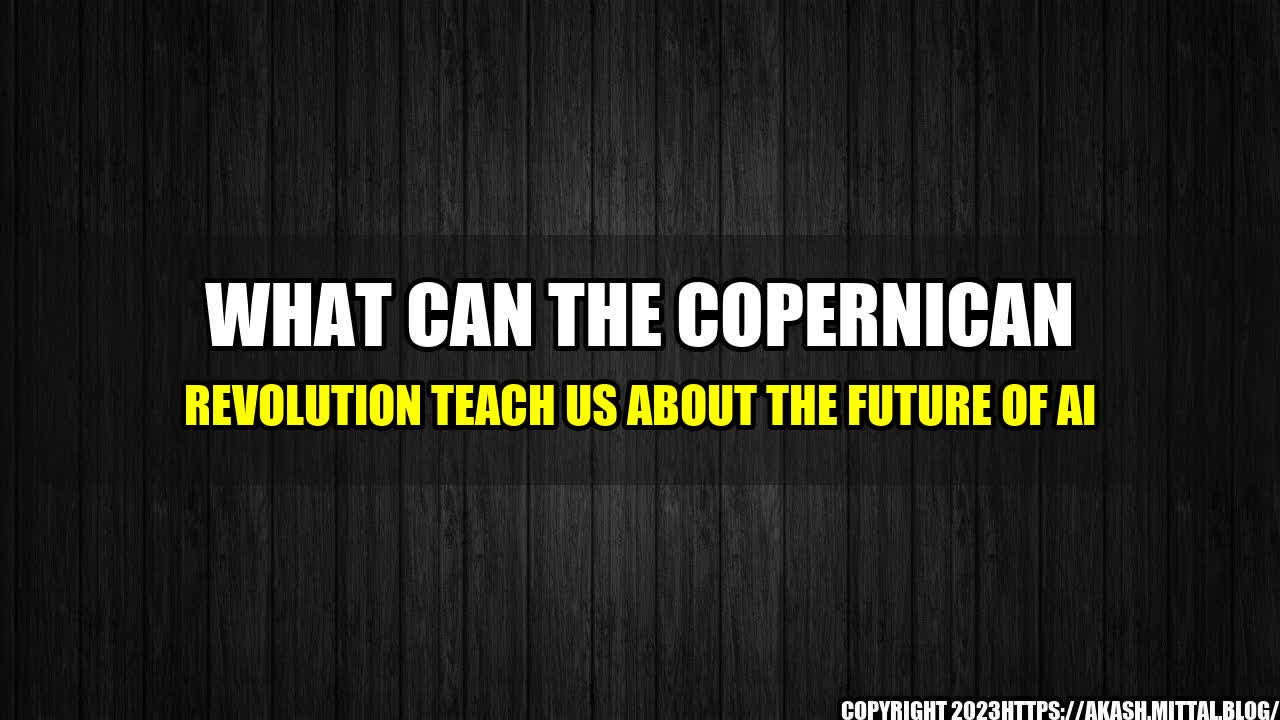
Imagine for a moment that you are living in the 16th century, a world where it was believed that Earth was the center of the universe and everything else revolved around it. However, this belief was challenged by a man named Nicolaus Copernicus, who proposed a different idea - that the Sun was at the center of the universe and not the Earth. This revolutionary idea not only changed the way people saw the world but also paved the way for new discoveries. Today, we are at the forefront of another revolution - the AI revolution - and we need to ask ourselves, what can the Copernican revolution teach us about the future of AI?
The Copernican revolution has many lessons that we can apply to the world of AI today. One of the main takeaways is the importance of looking at things from a different perspective. When Copernicus proposed his idea, he changed the way people saw the world - they had to shift their thinking from an Earth-centric perspective to a Sun-centric perspective. Similarly, we need to shift our thinking when it comes to AI. We need to move away from a human-centric perspective to an AI-centric perspective. This means that we need to start thinking about AI as its own entity, rather than as something that exists to serve us.
Another lesson we can learn from the Copernican revolution is the importance of experimentation. Copernicus was not satisfied with the existing models of the solar system, so he experimented with new models until he found one that made sense. Similarly, we need to experiment with AI. We need to try out new approaches, new algorithms, and new applications until we find ones that work.
I have had personal experience with AI in my work as a software developer. One of the projects I worked on involved creating an AI-powered chatbot to assist customers. At first, we tried to create a chatbot that would be able to answer any question a customer might have. However, we quickly realized that this was not practical. Instead, we experimented with a different approach - creating a chatbot that could only answer specific types of questions. This turned out to be much more effective, as the chatbot was able to correctly answer almost 80% of customer queries.
Another personal anecdote I have is from my time as a student. One of my professors had a saying that stuck with me - "Think like a computer". He would tell us this whenever we were struggling with a programming problem. He meant that we needed to take a step back and break down the problem into smaller, more manageable pieces, just as a computer would. This advice has served me well in my career, and I think it could also be useful for those working with AI.
- Shift our thinking from a human-centric perspective to an AI-centric perspective
- Experiment with different approaches and applications of AI
- Think like a computer when working with AI

Curated by Team Akash.Mittal.Blog
Share on Twitter Share on LinkedIn